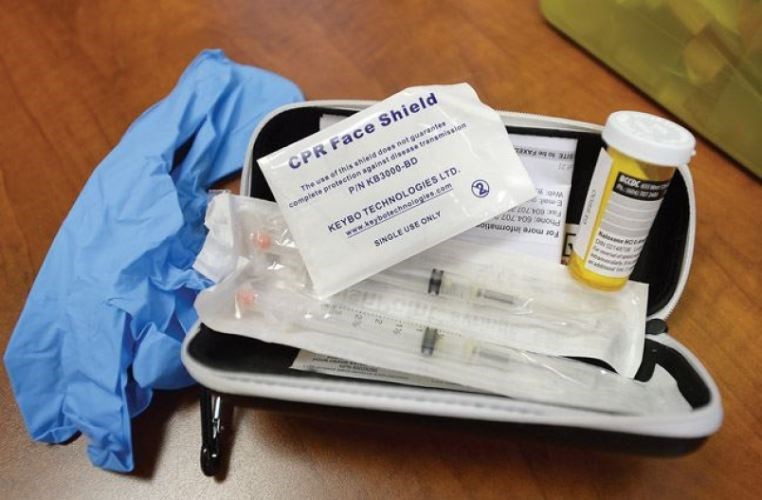The Central Interior Native Health Society has secured $75,000 to bring safe injection to drug users.
Dubbed Preventing Overdose Undoing Stigma (POUNDS), the program will be centred on teams of two people who will act as a "mobile overdose prevention team."
"We will meet individuals wherever they are in the community, whether they're in private residences or in public spaces and they're using substances alone," said program coordinator Jordan Harris.
The team will monitor the user and "if they overdose, we'll be prepared to reverse that overdose and save their life."
Each of the nine teams will be made up of a "peer" or a person who uses drugs and another who doesn't. Harris said the idea is to combine professional education with the value of lived experience and to reverse some of the stigma directed towards users.
They will also provide training on the use of naloxone, used to reverse the effects of an opioid overdose, distribute safe injection kits and provide testing for fentanyl, a highly-potent form of opioid considered the reason for the surged in deaths by overdose.
And when able, they will help dispose of "sharps" or discarded needles found around the city.
"Our priority is saving lives, but we're definitely interested in making the community a safe place for everybody," Harris said.
As of the end of September, 29 people have died in the city from illicit drug overdoses, up from 22 for all of last year, according to the B.C. Coroners Service. For the province as a whole, the count is 972 deaths so far, compared to 1,452 for all of 2017.
"The overdose crisis in this community is really not over," Harris said.
"There's kind of a general impression that we're coming out of this crisis because the numbers down south are starting to decline but they're not in the north.
"We're continually being rocked by loss in our community and that's why this program is so important. Over 90 per cent of those overdoses are happening inside, alone, where people are using for a number of reasons but stigma is a big part of why people use alone."
The teams should be ready to hit the streets at some point in November, once training had finished and an outreach vehicle has been lined up. They will work Wednesday to Sunday from 8 p.m. to midnight, extending their shifts to
2 a.m. during the weeks when social assistance cheques arrive.
Harris said overdose prevention services are largely limited to the Northern Health harm reduction office at Third Avenue and George Street and it's open Monday to Saturday, 1 to 6 p.m. It's also only for those who inject whereas POUNDS will also be able to accommodate those who smoke.
"If we can keep them alive, we can give them an option to find hope another day," Harris said.
The funding is enough to keep the program going for 10 months but Harris said additional grants are being pursued.
"And at around probably the three-month mark, we will see how we're doing and if we're meeting any of our goals in any capacity at that point, we'll start pursuing some ongoing funding so we can create a sustainable program," Harris said.
Holding an open house in Prince George to increase public awareness of addiction and available services is also a goal. As well, the New Hope Society received $19,874 for a variety of initiatives geared towards marginalized women and sex workers, such as naloxone training and overdose prevention, as well as support for grief and loss over the course of the year.
The B.C. Mental Health and Addictions Ministry announced the funding this week.



